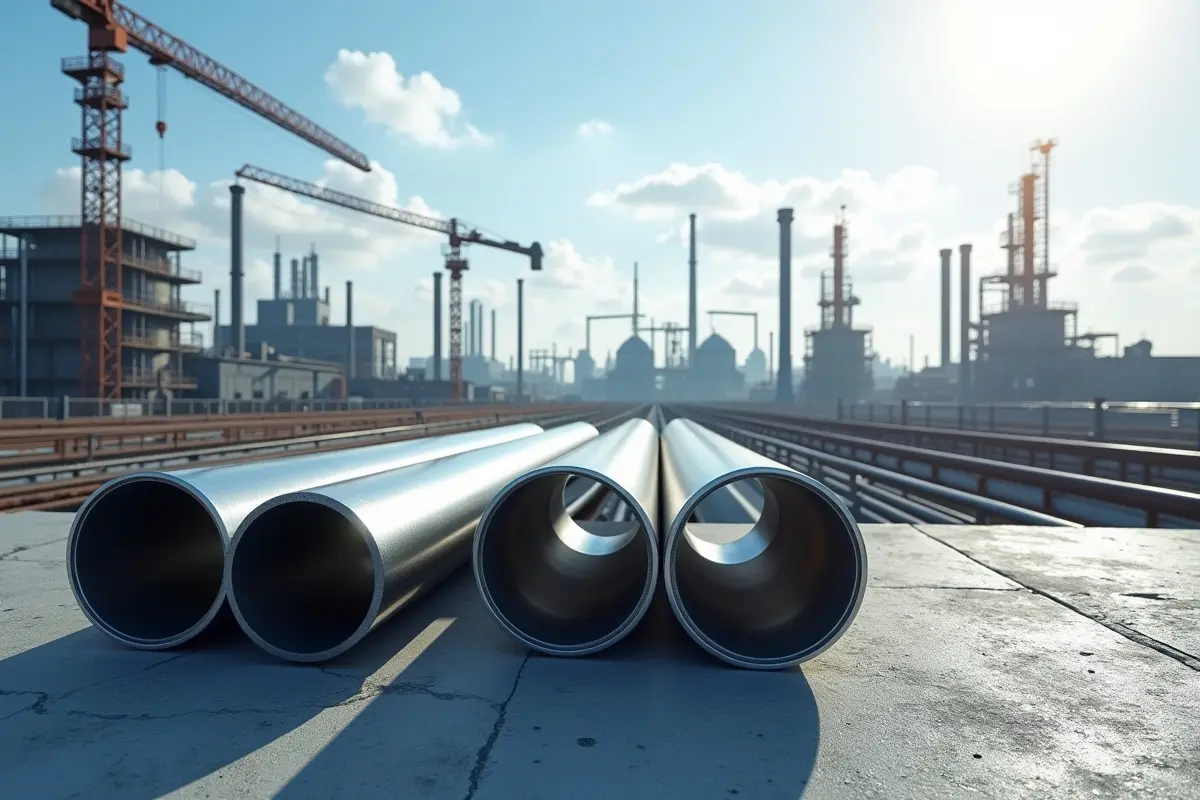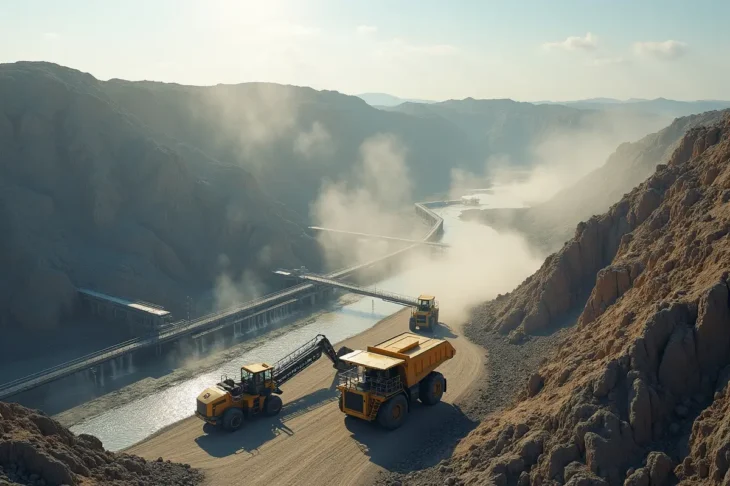
Steel Pipes 101: Different Industry Needs
Steel pipes are a staple across countless industries, forming a foundation for everything from transport networks to manufacturing and construction. But not all steel pipes are created equal, and their applications can vary dramatically based on the specific demands of each sector.
Key Steel Pipe Features by Industry
- Construction – High strength for load-bearing, cost-effective for large projects
- Manufacturing – Corrosion-resistant for chemical exposure, adaptable with coatings or linings
- Oil & Gas – Temperature and pressure tolerance for extreme environments, added linings for safety
- Automotive & Aerospace – Lightweight and durable alloys for performance, high safety standards
- Military & Defence – Extra tough, impact-resistant, certified to rigorous standards
- Plumbing & Water Systems – Corrosion resistance for continuous water exposure, long-lasting material
Let’s dive a bit deeper, shall we?
Construction and Infrastructure: Reliable, Strong, and Cost-Effective
In construction, reliability is everything. Steel pipes in this field must handle various stresses, from supporting large structures to handling environmental wear and tear. Architects and engineers often choose steel pipes because of their strength and versatility, making them ideal for structural support, scaffolding, and even underground water systems. You’ll often see carbon steel pipes or structural steel pipes here, given their high tensile strength and resistance to deformation.
When you’re building at scale, materials need to balance budget with quality, and steel is the perfect candidate for that.
Manufacturing: Versatile and Efficient
The manufacturing sector relies on steel for both production and transport processes. You might not see these pipes in finished consumer products, but they’re working behind the scenes to keep production running smoothly. Steel pipes transport liquids, gases, and even solid materials across factory floors, connecting machines and ensuring a consistent flow of materials.
Manufacturers often require pipes with specific coatings or treatments to prevent corrosion, especially when dealing with chemicals or high-humidity environments. Galvanised steel pipes, which resist rust and corrosion, are often chosen here for their durability, especially in humid or chemically intense environments.
Oil and Gas: Endurance in Tough Environments
The oil and gas industry is one of the most demanding when it comes to steel pipes. Not only do Aarbro steel pipe suppliers provide the necessary parts to transport crude oil, natural gas, and other resources over long distances, but these pipes also endure some of the harshest environments imaginable—extreme heat, pressure, and exposure to corrosive substances. Oil pipelines can stretch for thousands of kilometres across varied terrain, and any weakness in these pipes can lead to catastrophic failures.
In this sector, high-grade stainless steel pipes or specially treated carbon steel pipes are typically used. Some pipes even have added linings or coatings for extra protection, depending on the specific substance being transported.
Automotive and Aerospace: Precision and Lightweight Strength
In the automotive and aerospace industries, steel pipes are used for exhaust systems, fuel lines, and even structural elements. But these industries require pipes that balance strength with light weight, as any unnecessary weight can hinder performance and efficiency. The pipes used in this sector often undergo rigorous testing to ensure they meet safety and durability standards.
For this reason, manufacturers frequently choose alloy steel pipes, which combine metals like chromium and nickel to create a lightweight yet durable material.
Military and Defence: Extra Durability for Mission-Critical Applications
In defence applications, the stakes are higher than in almost any other industry. Military equipment and vehicles need steel pipes that can endure extreme conditions and even impacts. Defence-grade pipes are used in everything from military vehicles and aircraft to weapon systems and communication infrastructure.
Stainless steel and alloy steel pipes are common in defence applications due to their toughness and ability to withstand both environmental and operational stresses. Additionally, pipes in this field often undergo special testing and certification to meet the rigorous standards set by military organisations.
Plumbing and Water Systems: Corrosion-Resistant and Long-Lasting
Steel pipes also play a critical role in plumbing and water systems, where durability and safety are paramount. Pipes in this field need to withstand continuous exposure to water and other fluids without corroding or contaminating the supply. Galvanised steel and stainless steel pipes are frequently used here for their corrosion-resistant properties, which help to prevent rust and ensure a long-lasting pipeline.
In plumbing, longevity is key, as these pipes are often buried underground or installed within building walls. Replacing or repairing them can be costly and disruptive, so choosing the right material up front saves headaches down the line.
Key Qualities to Consider Across Industries
Across all these industries, certain qualities make steel pipes ideal for specific applications. Here’s what matters most:
- Strength – Essential for structural and load-bearing applications, such as in construction and infrastructure.
- Corrosion Resistance – Vital in industries exposed to water, chemicals, or harsh weather, such as plumbing and oil.
- Temperature and Pressure Resistance – A must for high-stress environments like aerospace, automotive, and oil and gas sectors.
- Flexibility and Adaptability – Some industries require pipes that can be customised with coatings, linings, or specific alloys, such as manufacturing.
- Certifications and Testing – In defence and aerospace, pipes often need certification to ensure they meet specific industry standards for safety and reliability.
Finding the Right Pipe for the Job
As you can see, steel pipes are anything but one-size-fits-all. Each industry has its unique demands, and the variety of steel pipes on the market ensures that there’s always an option that fits. Whether you’re looking for strength, corrosion resistance, or lightweight durability, there’s a steel pipe designed to meet your needs.

